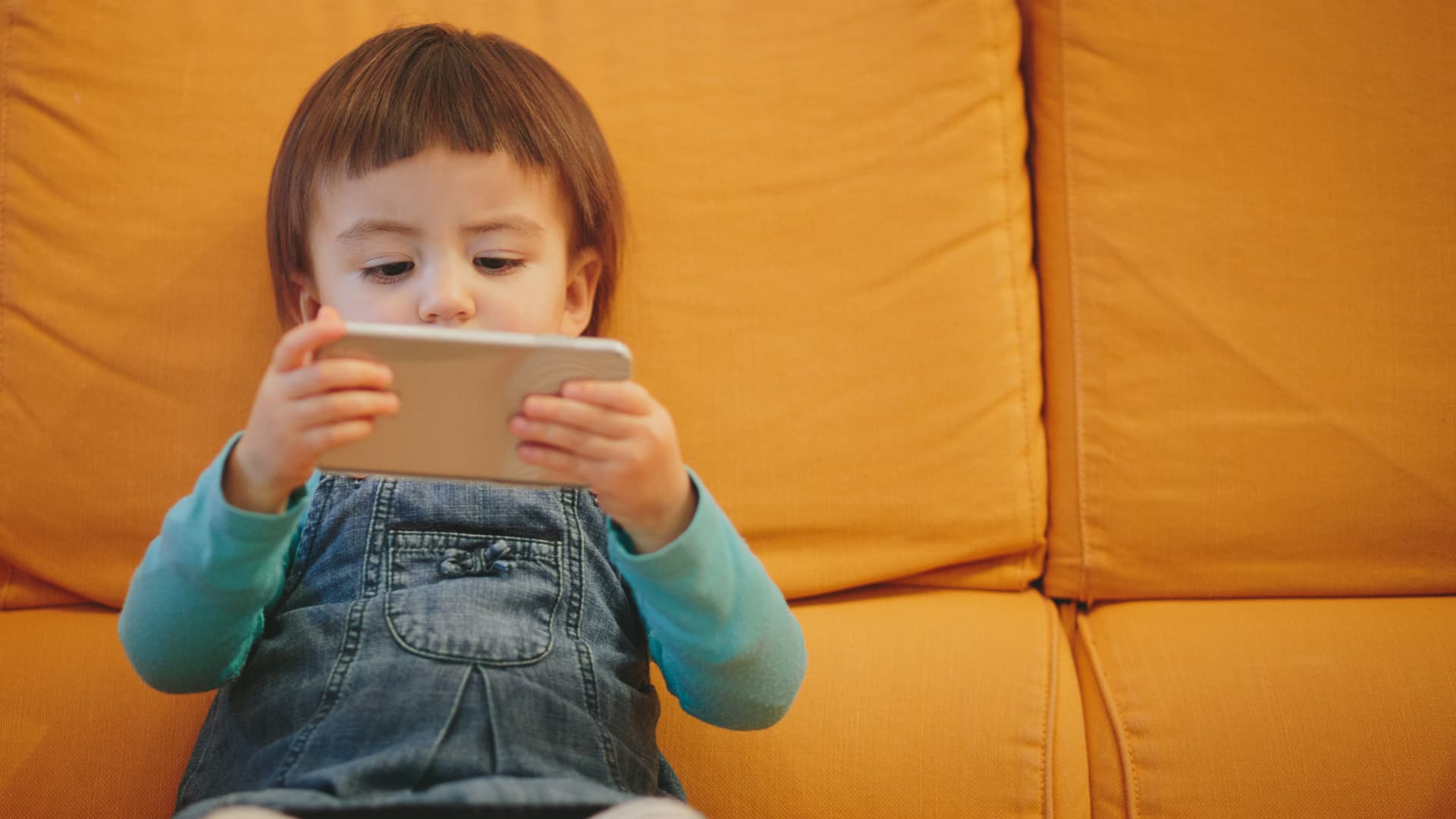How old should a child be before getting their first cell phone? There’s only one correct answer if you want them to lead happier, more successful lives, says Yale University psychology professor Laurie Santos: “Wait as long as possible.”
“I think the more we can hold off on giving kids technology — the longer, the better,” Santos, the professor behind Yale’s most popular course and host of the podcast “The Happiness Lab,” tells CNBC Make It.
Children ages eight to 12 who have phones spend just under five hours a day glued to their phones, and teenagers rack up nearly eight hours of screen time per day, a 2019 report from nonprofit Common Sense Media found.
That screen time is seldom used for creative activities like coding or making digital art. Rather, young people spend most of their phone time on social media or watching videos, Common Sense head of research Michael Robb wrote in an analysis of the report.
This is likely to encourage poor mental health — in ways that affect kids differently than adults — and distractions in the classroom, Santos says.
Social media use exposes many kids to cyberbullying, hate speech and discrimination, Make It reported in May. Even YouTube videos meant for children can contain malicious, disturbing or inappropriate content, as CNBC noted in 2018.
Just the sheer number of notifications a child might get from social media — probably more than than their parents do — can be overwhelming, says Santos.
“Teenagers are getting on the order of 200 notifications from their phones today,” she says. “These are brains that are forming and trying to pay attention in school [while their phones are going] ding, ding, ding.”
Halting smartphone use for children and young people until they’re in 8th grade comes with benefits, according to advocacy group Wait Until 8th, including:
Parents should also lead by example, Santos adds: If you’re constantly on your cell phone, it’ll be harder to justify why your child can’t have one.
“They’re not going to want to do as you say, they’re going to want to do as you do,” Santos says.
DON’T MISS: Want to be smarter and more successful with your money, work & life? Sign up for our new newsletter!
As technology reshapes business expectations, some leaders are embracing change and transforming their organizations for the future. Join the CNBC Evolve Global Summit on November 2 to hear strategies to adapt, innovate and succeed in this new era of business. Buy your ticket here.
Read the full article here






